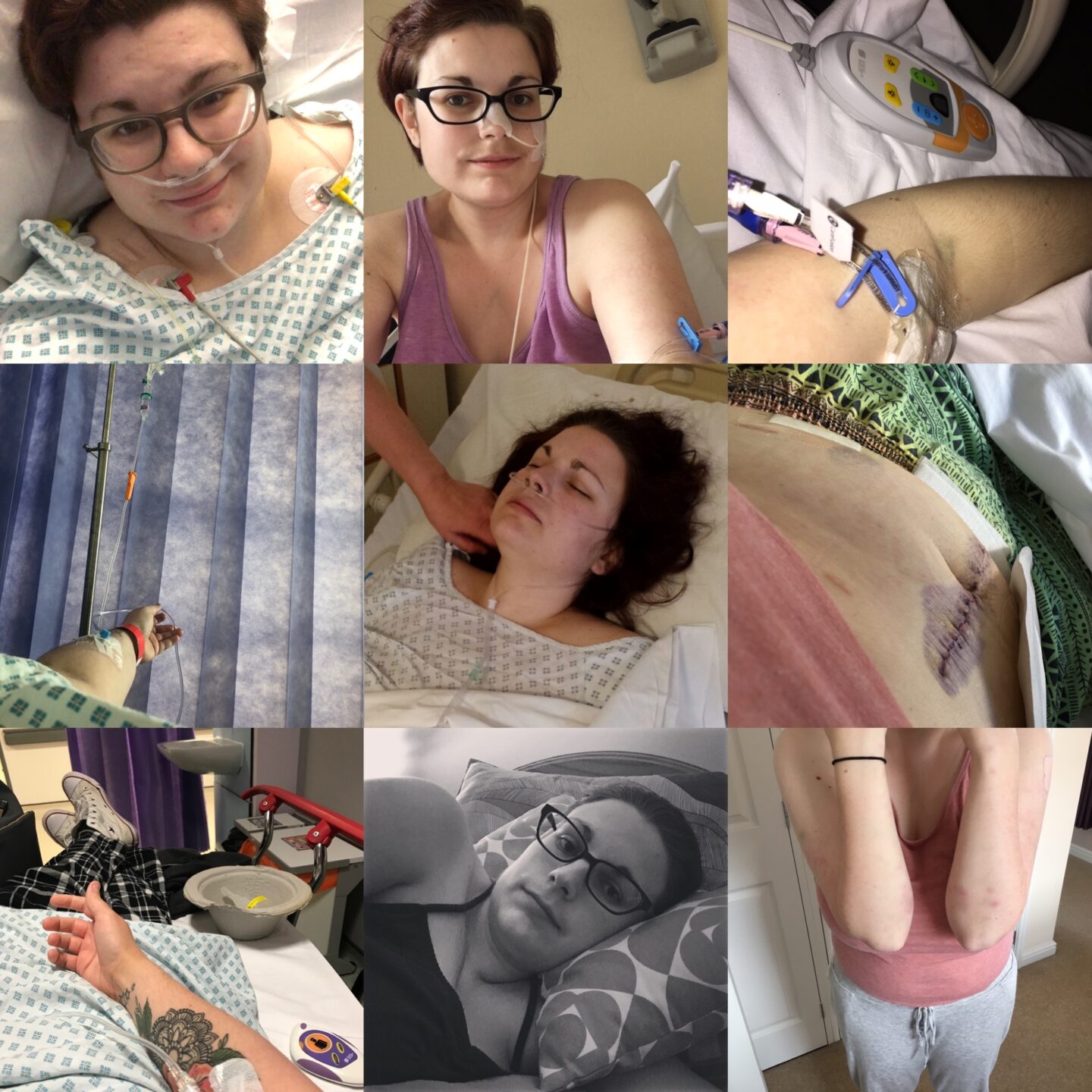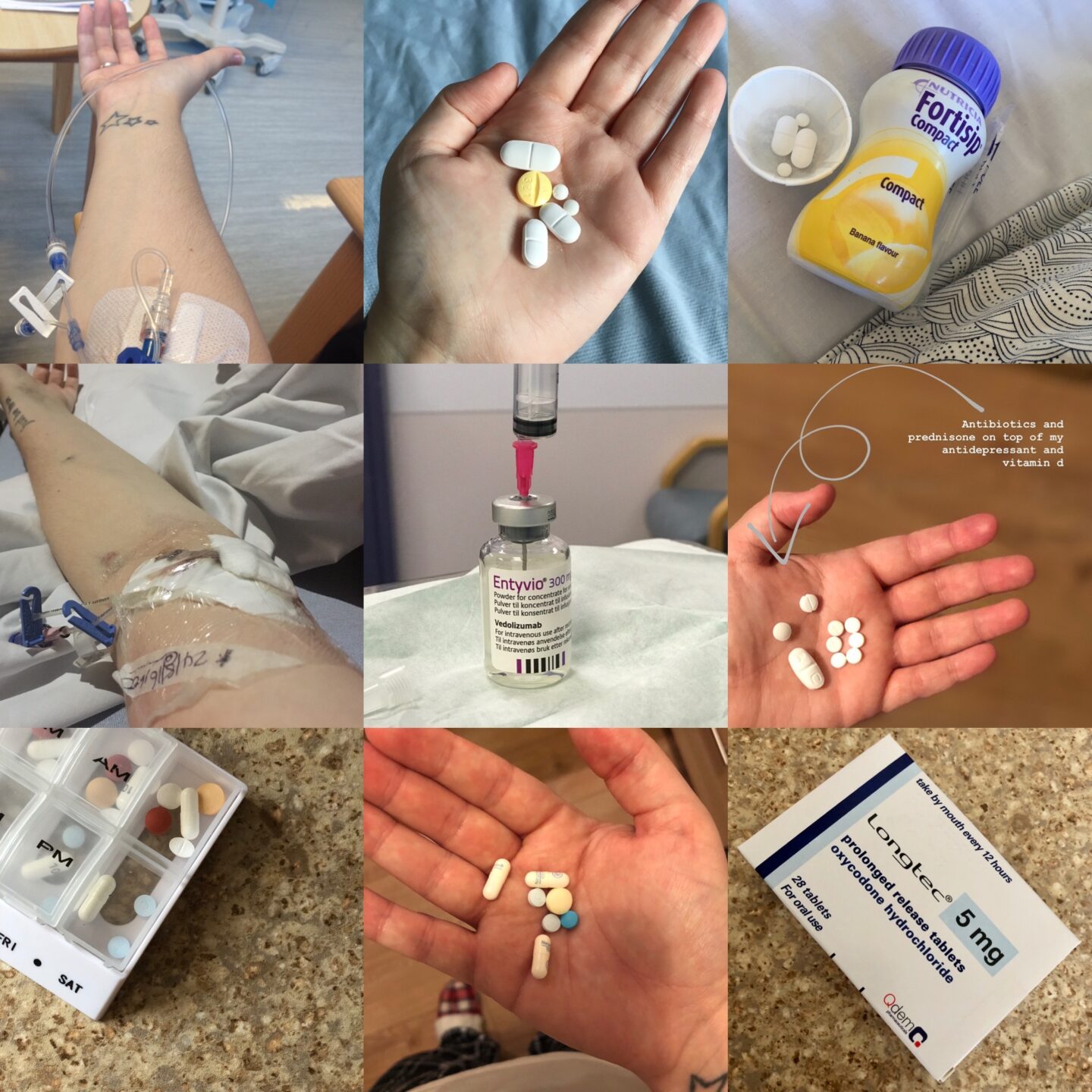
“How do you know when you’re flaring?”
I’ll admit this openly, but flare-ups used to scare the heck out of me. After I was officially diagnosed in late 2011 I had several bad flare-ups back to back, which always led to me being hospitalised. Luckily, that doesn’t happen so often now, because I have become better at reading my own body’s warning signs of an impending flare-up or problem.
In the beginning, everything is new – and I mean everything – every weird feeling, every odd pain, and sometimes the anxiety would create discomfort that I was sure was phantom pains – so you can sometimes come out of that feeling paranoid and thinking that alot of things will ‘set off’ your IBD. But that fear does subside. It does get easier to manage with time, with good doctors, with great nurses and the ability to talk about it, gut, gore and everything in between.
However, sometimes, your IBD does just flare-up. You can be going through trauma, stressful events, you can get an infection and it just kicks your immune system off (as it’s already attacking itself by the nature of IBD itself) or it could just be… bad luck? I don’t know but you do figure these things out. I know, I know that such a cliche and so unhelpful but I don’t want to paint ‘worse case’ or the ‘very worst IBD can get’ to frighten you. This is factual, honest information. And it’s part and parcel of having IBD; looking after yourself and being aware of what your condition is like for you.
What is a flare up?
A flare is the reappearance of disease symptoms. The most common symptoms of Crohn’s Disease and Ulcerative Colitis are:
- Frequent and/or urgent bowel movements
- Diarrhoea
- Bloody stool
- Abdominal pain
- Nausea and vomiting
- Weight loss
People may also report symptoms such as fatigue, lack of appetite, joint aches, body aches, rashes, and eye problems, including pain, redness, or loss of vision. The symptoms of IBD vary from person to person and may change over time. Your specific symptoms will depend on whether you have Crohn’s disease or Ulcerative Colitis an on the location of the disease within your gastrointestinal (GI) tract.
Managing your condition
You cannot completely prevent flare-ups of Crohn’s disease or ulcerative colitis. However, in addition to taking your medications regularly and eating a well-balanced diet, the following tips are recommended to help you best manage your disease during flares and remission:
- See your doctor regularly. Remember that the management of your disease is a partnership between yourself and your IBD team. So it is important to stay in close communication with them. During times of remission, you will probably visit your doctor every six months to a year. During times of flares, you may visit more often. You should contact your team any time you have questions or concerns about symptoms or ongoing treatment.
- Follow recommended guidelines for IBD-related tests and procedures. With proper treatment and disease monitoring, you can maximise your chances for good health, decrease the likelihood of missing signs of additional disease, and identify possible side effects of treatment. Ask your consultant how often you should get IBD-related tests and procedures (e.g., colonoscopies, routine blood work, etc.).
- Monitor and track your disease. It is important to track your disease between medical appointments so that you and your doctor can see how IBD is impacting your life and determine if any changes need to be made. There are several ways to do this; by using tracker apps such as My IBD Care to monitor symptoms, make notes and reminders for upcoming appointments. They use the recommended Crohns Disease Activity Index (CDAI), Simple Clinical Colitis Index (SCCI) and Harvey Bradshaw Index (HBI) to give you accurate clinical data.
Managing symptom discomfort
When symptoms are flaring, you may experience a variety of uncomfortable or painful symptoms. Here are some tips to help you cope with the discomfort:
- Practice good anal hygiene by showering with a hand shower or using a perianal cleansing product.
- To reduce anal irritation, use a moist towelette/wipe instead of bathroom tissue.
- Apply an all-purpose skin protectant at night to relieve irritation of the skin around the anus.
- For anal soreness or painful bowel movements due to an anal fissure or fistula, bathe in warm salt water or use a sitz bath.
- To help manage diarrhoea, anti-diarrheal medications, such as Imodium may be effective. However, do discuss this with your doctor – GP or IBD nursing team – prior to taking them.
- For joint-related discomfort, doctors may recommend resting the affected joint as well as the occasional use of moist heat.
- To reduce the irritation of small mouth ulcers medicinal mouth washes may be helpful, along with a balanced diet and a multivitamin/mineral supplement. Ongoing mouth ulcers should be reported to your IBD team.
- To help manage the symptoms of pain, experts recommend Paracetamol (acetaminophen) as the safest option for IBD patients. Consult with your doctor about the most appropriate pain management options.
- Remember to take care of yourself. Get plenty of sleep, eat well, and take time to recharge and reduce stress when you need it.
When should I seek urgent or emergency care?
NHS guidelines currently advise people to stay home and avoid attending GP, pharmacy or emergency/urgent care services, unless you have been advised to do so. But you will know your body and condition better than anyone. If you feel you need emergency or urgent care telephone 111.
Some signs could include:
- Stoma blockage: not passing wind or poo or passing watery poo, nausea, bloating or swelling tummy, tummy cramps, swollen stoma, nausea/vomiting or both.
- Severe dehydration, malnourishment and vomiting.
- Severe tummy pain, a high temperature and a rapid heartbeat.
- All medicines have a small risk of side effects, such as chest pain, rapid heartbeat or hives. If you experience any side effects that you are worried about while taking your medicine, contact your IBD team or your GP as soon as possible.

Until next time,

Do you have any questions or queries? Or just want to share your own experiences? You can leave me a reply here or leave comments via my social media accounts – on Twitter, find my blog page on Facebook and over on Instagram
If you enjoyed this post check out Has my Bag Improved my IBD? and “Does being in hospital get easier?”
Resources:
Managing Flares and IBD Symptoms – Crohns & Colitis Foundation of America
What to Do During a Flare-up of Inflammatory Bowel Disease – Healthline
What are the Early Warning Signs of an IBD Flare Up?
What to do if you have Crohn’s or Colitis and think you are having a flare-up – Crohns & Colitis UK





